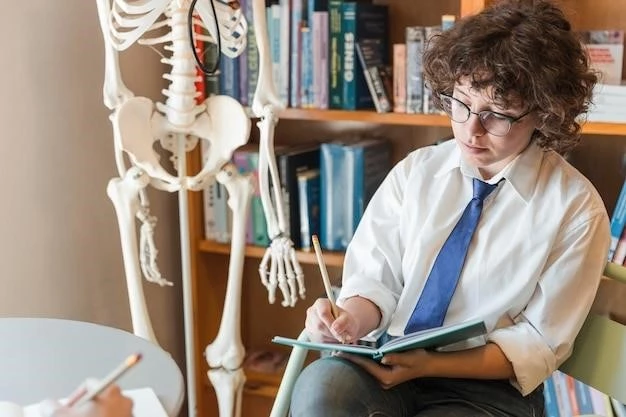Understanding Baraitser–Rodeck–Garner Syndrome
Before seeking treatment or support, understanding the causes, symptoms, and diagnosis of Baraitser–Rodeck–Garner Syndrome is crucial. Let’s explore the different aspects to navigate the condition effectively.
Causes of Baraitser–Rodeck–Garner Syndrome
Baraitser–Rodeck–Garner Syndrome is a rare genetic disorder caused by mutations in the ACTB or ACTG1 genes. These mutations affect the development of the brain and facial features during fetal growth, leading to the characteristic symptoms of the syndrome. It is essential to undergo genetic testing and counseling to understand the specific genetic cause in each case.
Individuals with Baraitser–Rodeck–Garner Syndrome inherit the mutated gene from their parents, making it important for family members to also consider genetic testing. While the exact triggers for the genetic mutations are not fully understood, ongoing research aims to deepen our understanding of the syndrome’s origins. By staying informed and seeking guidance from healthcare professionals, individuals can better comprehend the genetic component of this condition.
Symptoms and Signs of Baraitser–Rodeck–Garner Syndrome
Individuals with Baraitser–Rodeck–Garner Syndrome may present with a range of symptoms affecting the brain, facial features, and other body systems. Common signs include intellectual disability, distinctive facial features like a high forehead and a broad nose, small jaw, ear abnormalities, and eye anomalies.
Additionally, affected individuals may experience seizures, developmental delays, hearing loss, and structural abnormalities in the brain. Monitoring these symptoms closely and seeking specialized medical care are crucial for managing the condition effectively. Regular assessments by a team of healthcare professionals can help address individual needs and provide tailored support.
Collaborating with healthcare providers and specialists knowledgeable about Baraitser–Rodeck–Garner Syndrome can ensure comprehensive care and early intervention for any emerging symptoms. By staying informed about potential indicators and seeking timely medical attention, individuals can enhance their quality of life and well-being while navigating the challenges associated with this syndrome.
Diagnosis of Baraitser–Rodeck–Garner Syndrome
Diagnosing Baraitser–Rodeck–Garner Syndrome involves a comprehensive approach that includes clinical evaluations, genetic testing, and imaging studies. Healthcare providers may conduct physical exams to assess facial features, neurodevelopmental milestones, and any associated abnormalities.
Genetic testing plays a vital role in confirming the presence of mutations in the ACTB or ACTG1 genes٫ which are associated with the syndrome. Additionally٫ imaging studies such as MRI scans can help identify any structural brain abnormalities that are characteristic of the condition.
It is crucial for individuals suspected of having Baraitser–Rodeck–Garner Syndrome to consult with geneticists, neurologists, and other specialists to facilitate an accurate diagnosis. By seeking expert medical opinions and undergoing recommended diagnostic tests, individuals can gain a better understanding of their condition and access appropriate care and support tailored to their specific needs.
Treatment Options for Baraitser–Rodeck–Garner Syndrome
Managing Baraitser–Rodeck–Garner Syndrome involves a multidisciplinary approach focusing on addressing symptoms and optimizing overall well-being. Treatment options aim to support the individual’s specific needs and may include interventions from various healthcare professionals.
Therapies such as speech therapy, occupational therapy, and physical therapy can help individuals with developmental delays and improve their quality of life. Seizures associated with the syndrome may require medication management by a neurologist to control and reduce their frequency.
Regular follow-ups with healthcare providers are essential to monitor the progression of symptoms and adjust treatment plans accordingly. Collaborating with specialists familiar with rare genetic disorders can provide tailored care and assistance in navigating the challenges associated with the condition.
Exploring available resources and support networks can also be beneficial in connecting with others facing similar experiences and accessing relevant information. By actively engaging in treatment options and seeking ongoing support, individuals with Baraitser–Rodeck–Garner Syndrome can enhance their overall health and well-being.
Prognosis of Baraitser–Rodeck–Garner Syndrome
The prognosis for individuals with Baraitser–Rodeck–Garner Syndrome can vary depending on the severity of symptoms and the extent of medical interventions. As a rare genetic disorder, the long-term outlook may involve challenges that require ongoing monitoring and support.
While the syndrome can present with intellectual disabilities, developmental delays, and other health issues, early diagnosis and comprehensive care can significantly improve the quality of life for affected individuals. By engaging in tailored treatment plans and supportive therapies, individuals can enhance their overall well-being and reach their full potential.
Regular consultations with healthcare providers, specialists, and genetic counselors can help address evolving needs and ensure appropriate management of symptoms. Understanding the prognosis of Baraitser–Rodeck–Garner Syndrome involves staying informed, being proactive about healthcare decisions, and seeking assistance from knowledgeable professionals.
Every individual’s journey with the syndrome is unique, and establishing a strong support network can provide emotional, medical, and practical assistance to navigate the challenges that may arise. By fostering a holistic approach to care and embracing a proactive mindset, individuals with Baraitser–Rodeck–Garner Syndrome can optimize their prognosis and lead fulfilling lives.
Research Advancements in Baraitser–Rodeck–Garner Syndrome
Ongoing research in the field of Baraitser–Rodeck–Garner Syndrome aims to deepen our understanding of the genetic mutations, underlying mechanisms, and potential treatment options for individuals affected by this rare condition. Scientists and healthcare professionals are continually exploring new avenues to improve diagnostic techniques, enhance therapeutic approaches, and expand support services.
Advancements in genetic sequencing technologies have facilitated more accurate and efficient identification of the specific gene mutations associated with the syndrome. This progress not only aids in early diagnosis but also contributes to personalized treatment strategies based on an individual’s genetic profile.
Clinical trials and studies focused on Baraitser–Rodeck–Garner Syndrome offer hope for future interventions that target symptom management, cognitive development, and overall quality of life. By actively participating in research initiatives and sharing knowledge within the medical community, researchers and healthcare providers can collaborate to promote better outcomes for individuals with this complex genetic disorder.
Staying informed about the latest breakthroughs in Baraitser–Rodeck–Garner Syndrome research can empower individuals, families, and healthcare professionals to make informed decisions, access cutting-edge treatments, and contribute to the collective effort of advancing care and support for those impacted by the syndrome.
Support Groups for Baraitser–Rodeck–Garner Syndrome
Connecting with support groups dedicated to Baraitser–Rodeck–Garner Syndrome can provide individuals and families with valuable resources, information, and a sense of community. These groups offer a platform for sharing experiences, seeking advice, and accessing emotional support from others who understand the challenges associated with the condition.
Support groups can serve as a source of encouragement, empowerment, and advocacy, helping individuals navigate the complexities of managing the syndrome and addressing related concerns. By joining these communities, individuals can expand their network, build relationships with peers, and foster a supportive environment that promotes wellness and resilience.
Participating in support groups also offers opportunities to stay updated on the latest developments in research, treatment options, and lifestyle management strategies specific to Baraitser–Rodeck–Garner Syndrome. Engaging with like-minded individuals can inspire hope, foster solidarity, and provide a sense of belonging in a shared journey towards better health and well-being.
Whether in-person or online, support groups play a vital role in nurturing a sense of unity, understanding, and empowerment among those affected by Baraitser–Rodeck–Garner Syndrome. By actively engaging with these communities, individuals can navigate challenges more effectively, access valuable information, and build a strong support system to enhance their overall quality of life.
Lifestyle Management for Individuals with Baraitser–Rodeck–Garner Syndrome
Effective lifestyle management plays a crucial role in promoting overall well-being and supporting individuals with Baraitser–Rodeck–Garner Syndrome in leading fulfilling lives. Implementing strategies tailored to the unique needs of each individual can enhance quality of life and optimize health outcomes.
Embracing a balanced diet rich in nutrients, staying physically active within individual capabilities, and ensuring adequate rest and relaxation are essential components of a healthy lifestyle for individuals with Baraitser–Rodeck–Garner Syndrome. Consulting with healthcare providers and specialists can help develop personalized plans to address specific dietary needs and physical activities.
Furthermore, fostering social connections, engaging in activities that encourage cognitive stimulation, and accessing appropriate educational and vocational support can contribute to a holistic approach to lifestyle management. Creating a supportive environment that prioritizes individual strengths, fosters independence, and encourages personal development is key to promoting overall well-being.
By incorporating lifestyle modifications that align with individual preferences and capabilities, individuals with Baraitser–Rodeck–Garner Syndrome can enhance their quality of life, improve functional abilities, and cultivate a sense of empowerment. Collaborating with healthcare professionals, educators, and support networks can provide valuable guidance and resources to assist in effective lifestyle management strategies tailored to individual needs.
Conclusion
Understanding Baraitser–Rodeck–Garner Syndrome involves a comprehensive exploration of its causes, symptoms, diagnosis, treatment options, prognosis, research progress, support networks, and lifestyle management strategies. By delving into these aspects, individuals, families, and healthcare providers can navigate the complexities of the syndrome more effectively.
With advancements in genetic testing and research, diagnostic accuracy has improved, enabling tailored treatment plans and proactive management of symptoms. Support groups offer much-needed emotional support, shared experiences, and a sense of community for those impacted by the syndrome.

Furthermore, lifestyle management plays a vital role in enhancing quality of life, promoting health, and fostering independence for individuals with Baraitser–Rodeck–Garner Syndrome. By prioritizing holistic well-being, personalized care, and empowerment, individuals can thrive despite the challenges posed by this rare genetic disorder.
Ultimately, staying informed, seeking professional guidance, building a support system, and embracing lifestyle adjustments are key components of effectively managing Baraitser–Rodeck–Garner Syndrome. By adopting a proactive and collaborative approach, individuals can optimize their health outcomes and lead fulfilling lives while navigating the complexities associated with this condition.
